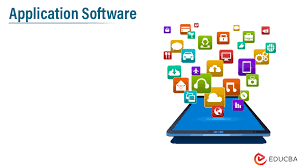The Impact of Digital Technology on Modern Society
In today’s fast-paced world, digital technology plays a crucial role in shaping how we live, work, and interact with one another. From smartphones and social media to artificial intelligence and the Internet of Things, the digital landscape continues to evolve and revolutionize various aspects of our daily lives.
One of the most significant impacts of digital technology is its ability to connect people across the globe. Through social networking platforms and instant messaging apps, individuals can communicate with others regardless of geographical boundaries. This interconnectedness has transformed how we build relationships, share information, and collaborate on a global scale.
Furthermore, digital technology has revolutionized industries such as healthcare, education, and finance. Telemedicine allows patients to consult with healthcare providers remotely, while online learning platforms offer accessible educational resources to learners worldwide. In the financial sector, blockchain technology has introduced secure and transparent ways to conduct transactions.
Businesses have also embraced digital technology to streamline operations, enhance customer experiences, and drive innovation. E-commerce platforms enable companies to reach a broader audience and facilitate online transactions efficiently. Data analytics tools provide valuable insights that help organizations make informed decisions and stay competitive in the market.
Despite its numerous benefits, the rapid advancement of digital technology also raises concerns about data privacy, cybersecurity threats, and digital divide issues. As society becomes increasingly reliant on digital tools and services, it is essential to address these challenges proactively to ensure a safe and inclusive digital future for all.
In conclusion, the impact of digital technology on modern society is profound and far-reaching. As we continue to embrace innovation and technological advancements, it is crucial to harness the power of digital tools responsibly while striving for a more connected, efficient, and equitable world.
Understanding Digital: Key Questions and Answers on Technology, Transformation, and Security
- What is digital technology?
- How has digital transformation impacted businesses?
- What are the benefits of digitization?
- What is the difference between analog and digital?
- How does digital marketing work?
- What are the risks associated with cybersecurity in the digital age?
- How can individuals protect their online privacy?
- What role does artificial intelligence play in the digital world?
What is digital technology?
Digital technology refers to the use of electronic devices and systems that operate using binary code, which consists of combinations of 0s and 1s. This technology encompasses a wide range of tools and platforms that leverage digital data to perform various functions, such as communication, data processing, and automation. Examples of digital technology include computers, smartphones, the Internet, and software applications. In essence, digital technology enables the storage, manipulation, and transmission of data in a digital format, revolutionizing how we interact with information and conduct tasks in our modern world.
How has digital transformation impacted businesses?
Digital transformation has significantly impacted businesses by revolutionizing how they operate and engage with customers. From streamlining internal processes and improving efficiency to enhancing customer experiences and expanding market reach, digital transformation has become a key driver of success in today’s competitive landscape. By leveraging technologies such as cloud computing, data analytics, artificial intelligence, and automation, businesses can adapt to changing market dynamics, innovate faster, and stay ahead of the curve. Embracing digital transformation not only enables companies to remain agile and responsive to evolving customer needs but also opens up new opportunities for growth and sustainability in the digital age.
What are the benefits of digitization?
Digitization offers a wide range of benefits across various aspects of society and business. One key advantage is improved efficiency and productivity through automation of processes, reducing manual tasks and streamlining operations. Digitization also enhances accessibility and convenience by enabling information to be easily stored, shared, and accessed from anywhere at any time. Additionally, it facilitates better decision-making through data analytics, providing valuable insights that can drive strategic actions and innovation. Furthermore, digitization promotes sustainability by reducing paper usage and energy consumption associated with traditional methods. Overall, the benefits of digitization extend beyond just cost savings to encompass increased agility, competitiveness, and customer satisfaction in the digital age.
What is the difference between analog and digital?
The fundamental difference between analog and digital lies in the way information is represented and processed. Analog signals are continuous and vary smoothly over time, while digital signals are discrete and represented by a series of distinct values or states. In analog systems, data is transmitted in a wave-like form, allowing for infinite variations in amplitude or frequency. On the other hand, digital systems encode information into binary digits (0s and 1s), enabling precise representation and manipulation of data through numerical values. This distinction impacts various aspects of technology, from signal processing and communication to storage and computation, shaping the capabilities and characteristics of analog and digital devices.
How does digital marketing work?
Digital marketing is a strategic approach that leverages various online channels and platforms to promote products or services to a targeted audience. It involves utilizing tools such as social media, search engine optimization (SEO), email marketing, and content creation to reach potential customers and drive engagement. By analyzing data and metrics, digital marketers can measure the effectiveness of their campaigns, optimize strategies for better results, and ultimately increase brand awareness, generate leads, and boost sales. The dynamic nature of digital marketing allows businesses to adapt quickly to changing trends and consumer behaviors in the digital landscape.
What are the risks associated with cybersecurity in the digital age?
In the digital age, cybersecurity risks have become a major concern due to the increasing reliance on digital technologies and interconnected systems. Cyber threats such as data breaches, ransomware attacks, phishing scams, and malware infections pose significant risks to individuals, businesses, and organizations worldwide. These risks can result in financial losses, reputational damage, loss of sensitive information, and disruption of operations. As cyber attackers become more sophisticated and persistent, it is crucial for individuals and businesses to prioritize cybersecurity measures such as strong passwords, regular software updates, employee training on cybersecurity best practices, and implementing robust security protocols to safeguard against potential cyber threats in the ever-evolving digital landscape.
How can individuals protect their online privacy?
In an increasingly digital world, protecting online privacy is paramount. Individuals can safeguard their personal information by implementing various security measures. This includes using strong, unique passwords for each online account, enabling two-factor authentication whenever possible, being cautious about sharing sensitive information on social media, regularly updating software and antivirus programs, and being wary of phishing attempts and suspicious links. Additionally, utilizing virtual private networks (VPNs) and privacy-focused browser extensions can add an extra layer of protection when browsing the internet. By staying informed about cybersecurity best practices and taking proactive steps to secure their online presence, individuals can better protect their privacy in the digital age.
What role does artificial intelligence play in the digital world?
Artificial intelligence (AI) plays a pivotal role in the digital world by driving innovation and enhancing efficiency across various sectors. It enables machines to perform tasks that typically require human intelligence, such as learning, reasoning, and problem-solving. In the digital realm, AI is used to analyze vast amounts of data to provide insights and predictions, automate repetitive tasks, and improve decision-making processes. It powers technologies like chatbots, virtual assistants, personalized recommendations, and autonomous vehicles. By continuously learning and adapting from new data inputs, AI systems can optimize operations in industries ranging from healthcare to finance and beyond. As AI technology advances, it promises to further transform the digital landscape by creating more intelligent systems that can anticipate needs and deliver tailored solutions.




